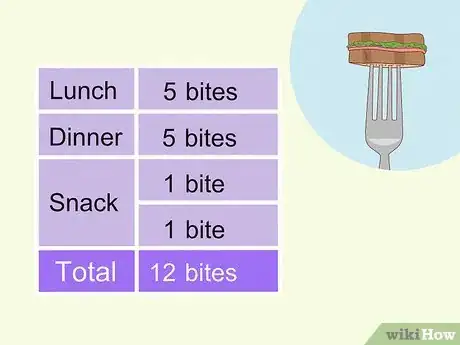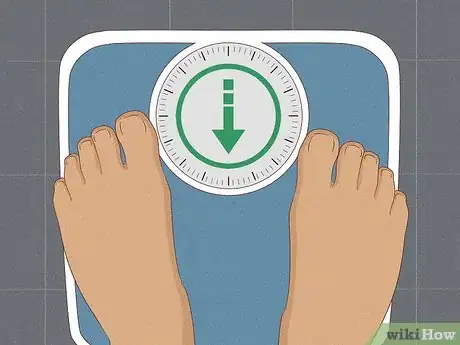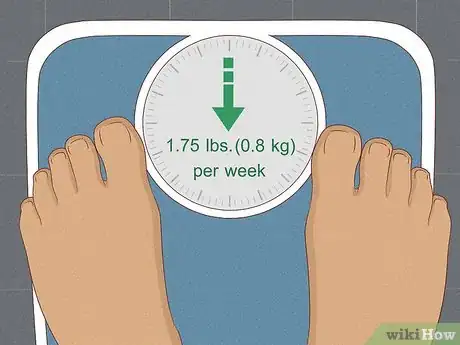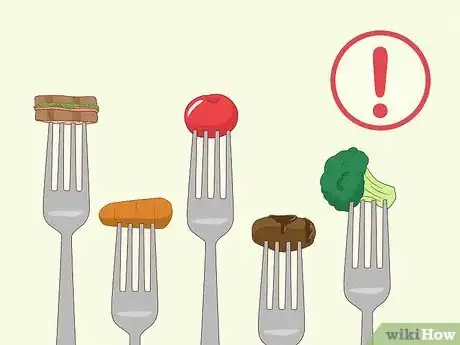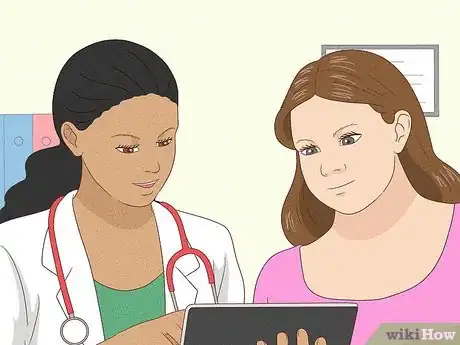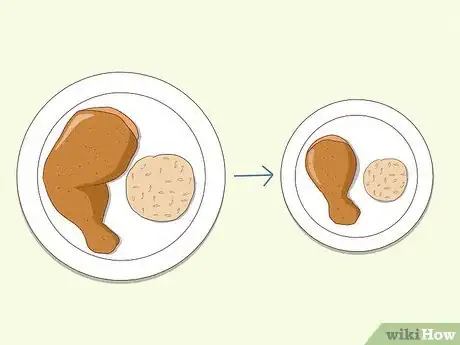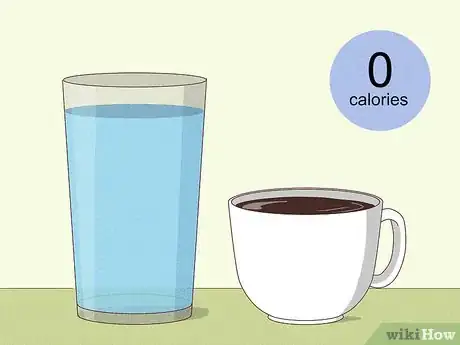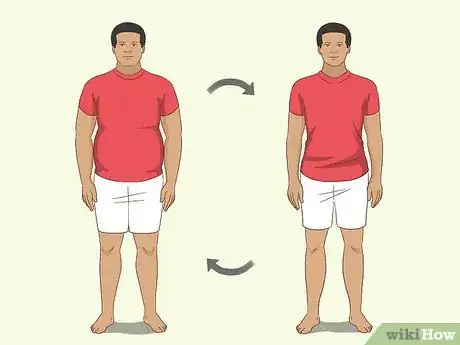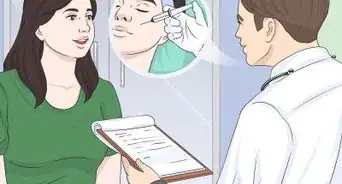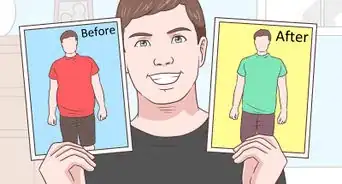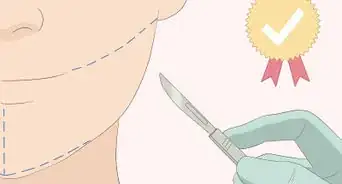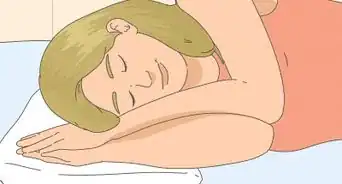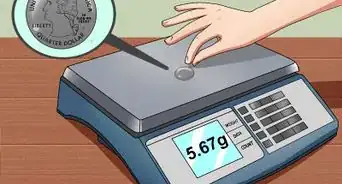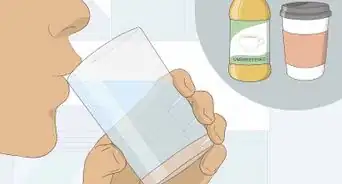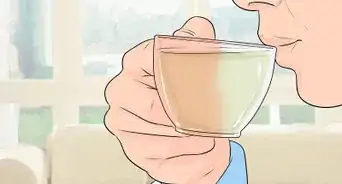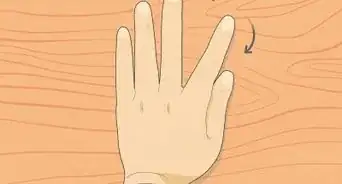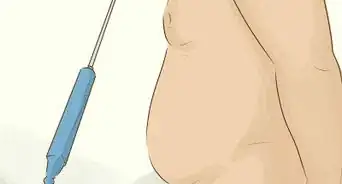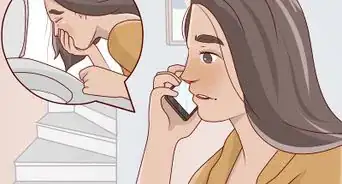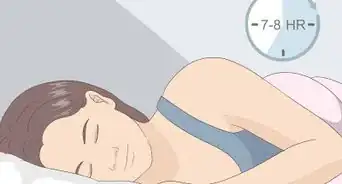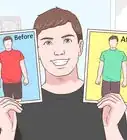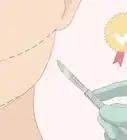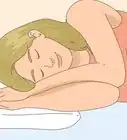This article was co-authored by Alyssa Chang. Alyssa Chang is a nutrition coach and trainer, based in the San Francisco Bay Area. She uses her extensive background in brain-based neuroscience to work with clients on improving their connections with their brain and body to heal, reach goals, and move pain-free. She holds a BS in Kinesiology and Exercise, Nutrition and Wellness from the California State University, East Bay and is certified in Precision Nutrition, Z-health Performance and is certified by the National Council for Strength and Fitness.
There are 14 references cited in this article, which can be found at the bottom of the page.
wikiHow marks an article as reader-approved once it receives enough positive feedback. This article has 12 testimonials from our readers, earning it our reader-approved status.
This article has been viewed 282,480 times.
The 5-bite diet has just a couple of simple rules based on counting the amount you eat instead of switching to healthier foods or exercising. Like a lot of fad diets, this has a grain of truth—eating very little food is a way to lose weight—but doesn't give you all the information you need to make a safe, healthy choice. If you want to try a very low-calorie diet like this, it's always best to get a doctor involved. They can help you follow this diet more safely, or build a more holistic weight loss plan that also includes healthier eating and exercise. For most people, a less extreme plan is actually more effective (and less physically and emotionally brutal) for staying at your goal weight long-term.
Steps
Expert Q&A
-
QuestionIs fasting a good way to lose fat?
 Alyssa ChangAlyssa Chang is a nutrition coach and trainer, based in the San Francisco Bay Area. She uses her extensive background in brain-based neuroscience to work with clients on improving their connections with their brain and body to heal, reach goals, and move pain-free. She holds a BS in Kinesiology and Exercise, Nutrition and Wellness from the California State University, East Bay and is certified in Precision Nutrition, Z-health Performance and is certified by the National Council for Strength and Fitness.
Alyssa ChangAlyssa Chang is a nutrition coach and trainer, based in the San Francisco Bay Area. She uses her extensive background in brain-based neuroscience to work with clients on improving their connections with their brain and body to heal, reach goals, and move pain-free. She holds a BS in Kinesiology and Exercise, Nutrition and Wellness from the California State University, East Bay and is certified in Precision Nutrition, Z-health Performance and is certified by the National Council for Strength and Fitness.
Wellness Coach & Personal Trainer Fasting is probably one of the last things I would suggest to lose weight, just because your brain thrives off of glucose, and that comes in the form of carbohydrates and sugar. So, when someone goes for a pretty long fast, they start to experience poor symptoms like low mood, irritability, lack of patience, lack of productivity, pain, and range of motion issues.
Fasting is probably one of the last things I would suggest to lose weight, just because your brain thrives off of glucose, and that comes in the form of carbohydrates and sugar. So, when someone goes for a pretty long fast, they start to experience poor symptoms like low mood, irritability, lack of patience, lack of productivity, pain, and range of motion issues.
References
- ↑ https://www.thehansindia.com/featured/sunday-hans/5-bite-diet-546428
- ↑ https://onlinelibrary.wiley.com/doi/full/10.1038/oby.2001.134
- ↑ https://pubmed.ncbi.nlm.nih.gov/24372837/
- ↑ https://onlinelibrary.wiley.com/doi/full/10.1038/oby.2001.134
- ↑ https://www.nhs.uk/live-well/healthy-weight/how-to-diet/
- ↑ https://www.pennmedicine.org/updates/blogs/health-and-wellness/2018/june/crash-diets-and-weight-loss
- ↑ https://academic.oup.com/ajcn/article-abstract/34/4/453/4693120?redirectedFrom=fulltext
- ↑ https://onlinelibrary.wiley.com/doi/full/10.1038/oby.2001.134
- ↑ https://www.ncbi.nlm.nih.gov/pmc/articles/PMC6366252/
- ↑ https://www.bda.uk.com/about-dietetics/what-is-dietitian/dietitian-or-nutritionist.html
- ↑ https://my.clevelandclinic.org/health/articles/9476-fad-diets
- ↑ https://medlineplus.gov/ency/patientinstructions/000337.htm
- ↑ https://www.researchgate.net/publication/8982537_Liquid_calories_and_the_failure_of_satiety_How_good_is_the_evidence
- ↑ https://www.hsph.harvard.edu/nutritionsource/healthy-drinks/sugary-drinks/
- ↑ https://www.ncbi.nlm.nih.gov/pmc/articles/PMC5639963/
- ↑ Alyssa Chang. Wellness Coach & Personal Trainer. Expert Interview. 16 October 2019.
About This Article
If you want to lose weight fast, try the 5-bite diet, but know that this isn’t a healthy long-term solution since your body won't get the proper vitamins and nutrients it needs to function. An important part of the diet is drinking as much of any beverage you want, as long as it doesn’t have any calories. This will help you feel full and hydrated. Try to stick to these zero-calorie drinks for breakfast to speed up your weight loss. Then, for lunch, you can have 5 bites of any foods that you like, from an apple to a candy bar. Just make sure that your bites aren’t so big that they take more than 1 swallow. At dinner, you can take another 5 bites of anything you like, but aim to have 2 bites over the course of the day be from a protein source. Since you’ll be eating so little, you’ll need to supplement with a multivitamin and an omega-3 fish oil capsule daily to help your body function properly. To learn how to add snack bites to your diet, keep reading!
